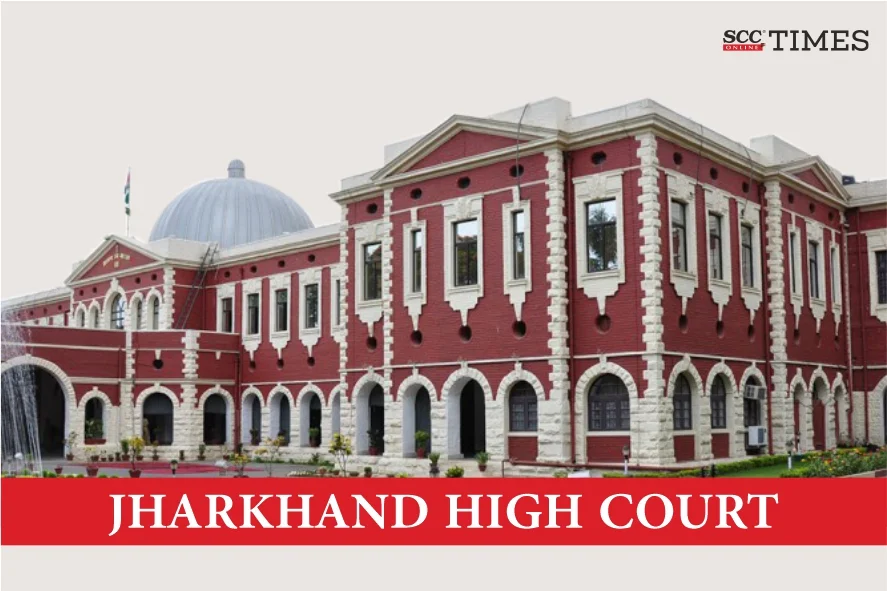Jharkhand High Court: While deciding the instant petition questioning the order of the Family Judge allowing the petition under Section 125 of CrPC against the petitioner-husband ex-parte and directed him to pay maintenance to his wife and minor daughter, the Bench of Anubha Rawat Chaudhary J.*, relying on the guidelines issued by the Supreme Court in Rajnesh v. Neha, (2021) 2 SCC 324, pointed out that even though the proceeding was ex-parte against the husband, still the wife was required to file an affidavit so as to find out her assets/liabilities/source of income etc.
The Court disposed of the petition and redirected the case of maintenance filed by the wife, to the Family Court, requiring the parties to appear before the said Court with their respective affidavits of income disclosure, as per the guidelines issued by the Supreme Court in Rajnesh v. Neha (supra).
Background
The wife filed a case for maintenance under Section 125 of CrPC before the Principal District Judge-cum-Family Judge, Ramgarh (“Family Court”). The Family Court issued the impugned ex-parte order via which the husband was directed to pay maintenance of Rs. 5,000 per month to his wife, and Rs. 1,000 per month tohis minor daughter.
The husband brought the instant criminal revision petition before the High Court against the afore-stated impugned order.
The husband claimed, even though he was a B. Tech Graduate, he was currently unemployed. Despite his unemployment, his income was tentatively assumed to be in between Rs. 25,000/- to Rs. 30,000/-. Therefore, he submitted that the impugned order requires interference. The husband further contended that the notice for the maintenance case was served to his brother instead of him, hence the husband had no knowledge of the proceedings, which resulted in the impugned ex-parte order.
Per contra, the respondents submitted that the husband and his brother were living under the same roof hence the notice was accepted as validly served and that the husband willfully missed the Family Court proceedings. It was argued that the impugned order was well-reasoned and therefore does not require any interference.
Observations and Judgment
Perusing the contentions of the parties, the Court noted that the impugned order calls for interference solely on the reason of the order being ex-parte and that the guidelines in Rajnesh v. Neha (supra) have not been complied with.
The Court extensively referred to the case of Rajnesh v. Neha (supra) wherein the Supreme Court had issued important guidelines to create a uniform format of Affidavit for Disclosure of Assets and Liabilities to be filed in maintenance proceedings.
The Court in the instant case specifically referred to Rajnesh v. Neha (supra) with regards to fixation of quantum of maintenance, disclosures of income by both the parties, issue of overlapping jurisdiction with regards to maintenance, cases where wife also has some earning etc.
The Court found that the directions issued by the Supreme Court in the case of Rajnesh v. Neha (supra) were not complied with, therefore, leading to the non-fixture of the quantum of maintenance as required under the guidelines.
The Court reiterated the importance of filing of the Affidavit of Disclosure of Assets and Liabilities by both parties in all maintenance proceedings, including pending proceedings before the Family Court/District Court/Magistrates Court concerned, nationwide.
The Court directed the parties to appear before the Court of Principal District Judge – cum- Family Judge, Ramgarh along with their respective affidavit of disclosures, disclosing their financial status including the period from the date of filing of the case.
The Court also directed the Family Court to pass a fresh order after the parties’ directed appearance within three months from the date of their appearance.
In terms of the maintenance amount fixed by the impugned order, the Court observed that the husband would continue to pay the current amount until the disposal of the matter before the Court, which shall be subjected to the outcome of the case.
[Sandeep Prasad v. State of Jharkhand, 2024 SCC OnLine Jhar 642, decided on 01-03-2024]
Advocates who appeared in this case :
For the Petitioner: Nehru Mahto, Advocate
For the State: Sunil Kumar Dubey, APP
For the Opposite Parties Nos. 2 and 3: Gaurav Kumar, Advocate:. Syed H. Arsh, Advocate








SCC hard copy as well as online, I am interested to be a Legal Professional..